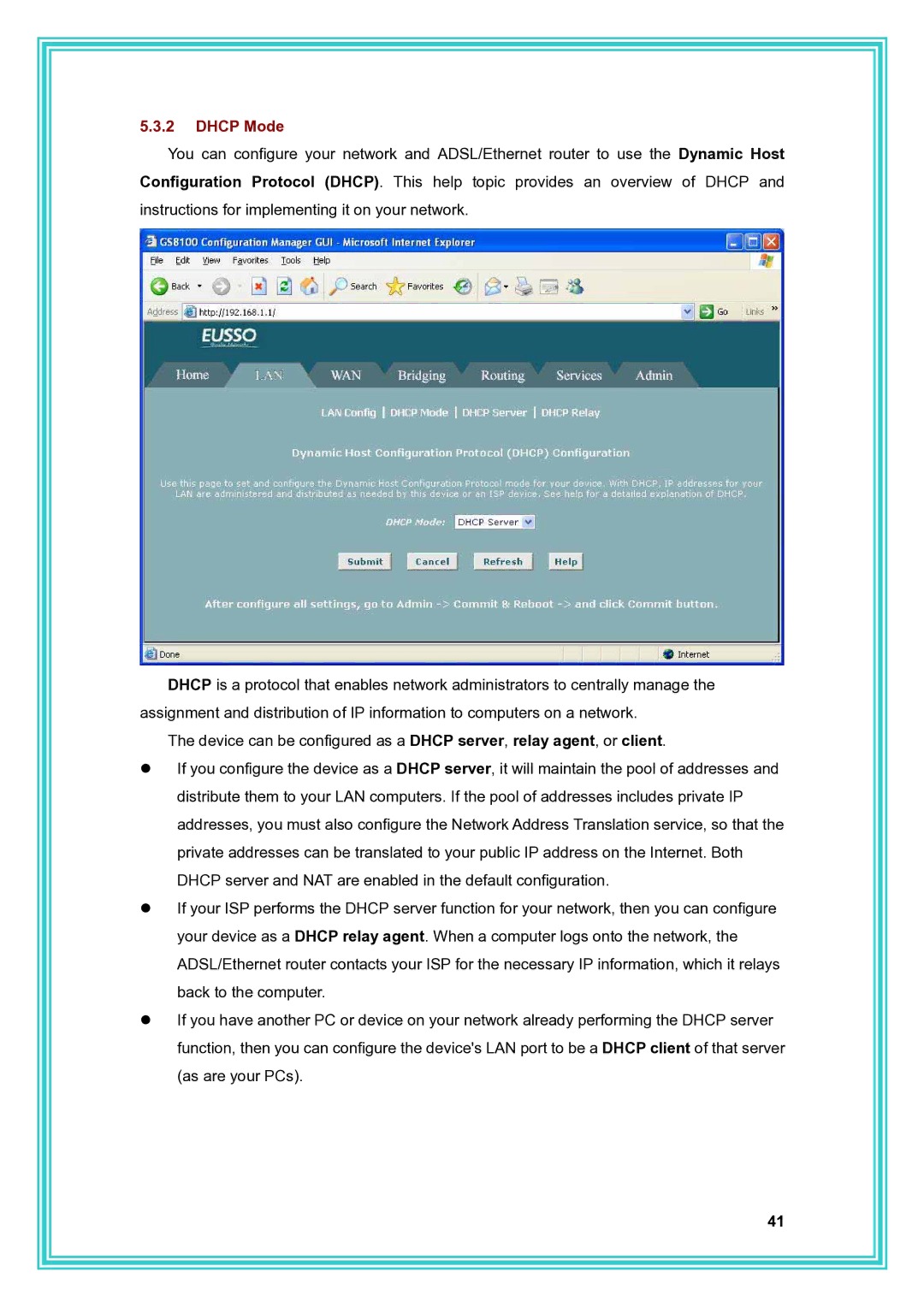
5.3.2DHCP Mode
You can configure your network and ADSL/Ethernet router to use the Dynamic Host Configuration Protocol (DHCP). This help topic provides an overview of DHCP and instructions for implementing it on your network.
DHCP is a protocol that enables network administrators to centrally manage the assignment and distribution of IP information to computers on a network.
The device can be configured as a DHCP server, relay agent, or client.
zIf you configure the device as a DHCP server, it will maintain the pool of addresses and distribute them to your LAN computers. If the pool of addresses includes private IP addresses, you must also configure the Network Address Translation service, so that the private addresses can be translated to your public IP address on the Internet. Both DHCP server and NAT are enabled in the default configuration.
zIf your ISP performs the DHCP server function for your network, then you can configure your device as a DHCP relay agent. When a computer logs onto the network, the ADSL/Ethernet router contacts your ISP for the necessary IP information, which it relays back to the computer.
zIf you have another PC or device on your network already performing the DHCP server function, then you can configure the device's LAN port to be a DHCP client of that server (as are your PCs).
41
